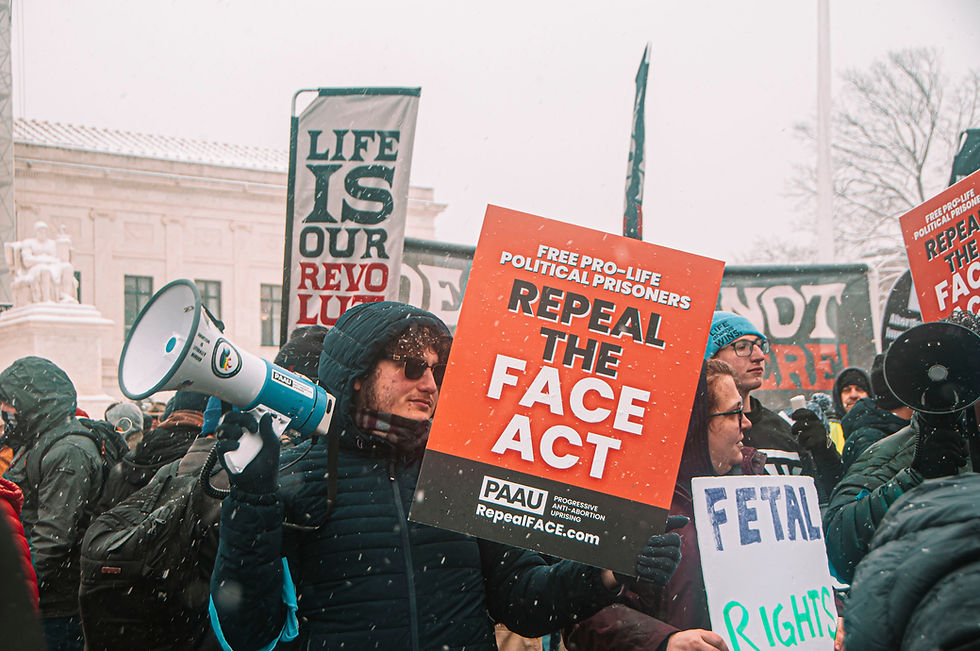The Perks of Being a Wallflower Series, 3.0: Abortion & Candace
- lifemattersjournal

- Mar 9, 2013
- 3 min read
BY ELIZABETH THOMSON
"We accept the love we think we deserve."
Abortion is one of the biggest consistent ethic of life topics, and is covered briefly in The Perks of Being a Wallflower. Stephen Chbosky does not go deeply into the topic, probably for two reasons: the first is that he may not be pro-life. The second is that it is not an encounter that most high school students experience: either because they do not have abortions, or those who do refrain from telling. Based on the large number of abortions performed in the United States, the latter is most probable.
What does abortion look like in the life of a teenage girl? Chbosky is more interested in the circumstances leading to Candace's abortion, and then he is mostly quiet about the ramifications. The baby's father was Candace's forbidden boyfriend "Ponytail Derek" (mentioned in "The Perks of Being a Wallflower Series, 2.0"). Not only would the pregnancy reveal that Candace is sexually active, but it would expose her disobedience in pursuing a relationship with the abusive boy that her parents forbade. It meant a lifelong tie to said boy.
Candace breaks to Ponytail Derek the news of her pregnancy at a school dance. They fight. When Charlie discovers her at home crying -- "a different kind of crying" -- he is frightened (Chbosky 116). She confides that the only three people who know are Candace, Charlie, and Ponytail Derek. The latter instantly claimed that the baby was not his and broke up with Candace instantly. Then she tells Charlie that she is 18 and does not "need permission," but only someone to take her to "the clinic." Charlie replies, "It’s lucky I got my license now," to make her laugh (117). "She didn’t."
Charlie takes Candace to the clinic. As he waits for her to "come through those doors," he flips through magazines, taking note of the objectification of women. Then he reflects on his sister: all of the girly things she did leading up to the point where these objectifications and magazines hurt her. She thought she was fat, but was "actually very pretty" (118). Then she became boy-driven. Charlie breaks down to cry for the first time in years.
She was the one who told him where babies come from. Chillingly, Chbosky adds: "My sister was also the one who laughed when I immediately asked where babies go to."
Candace lies to her ex-boyfriend, telling him that it was all a "false alarm" (121). Charlie observes: "I guess she just didn't trust him with the truth anymore." This leads me to a conclusion that I do not state categorically, but I think it is an idea worth considering: that no woman wants an abortion.
Women want solutions. No woman wants to put herself in danger, nor to harm her child. Abortion is everything against a woman’s nature and, furthermore, evolution. Whatever pro-abort feminists say, women are designed in such a way to desire an expression of maternal instinct. On some level all women are incubators, either biologically or by having some intuition for caring about other human beings. The human race would have been extinct long ago if this were not the case. If, by some chance, there were women without the maternal instinct, the gene would have been filtered. Mothers create children. Only those with maternal instinct would perpetuate the human race. Abortion is counterintuitive. Abortion hurts women.
This leads to our next blog series: the role of women in the consistent ethic of life.
REFERENCE
Chbosky, Stephen. The Perks of Being a Wallflower. New York: Simon & Schuster Inc., 1999. Print.



Comments